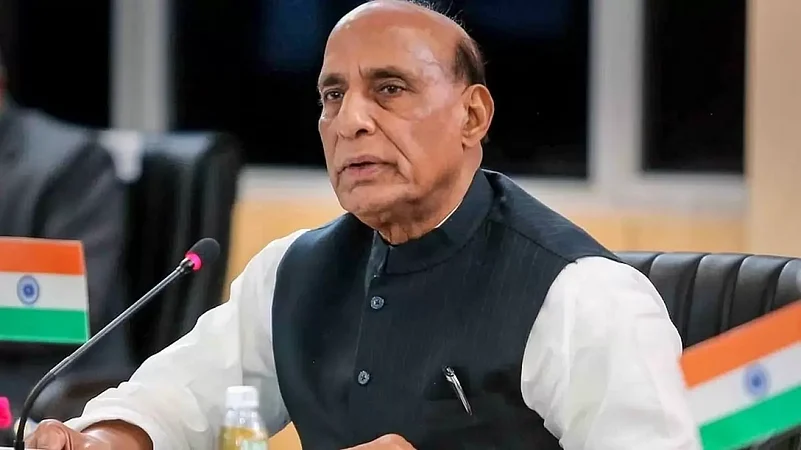India's Defence Minister, Rajnath Singh, emphasized India's unwavering commitment to the principles of freedom of navigation, overflight, and lawful commerce in international waters in accordance with established global norms. Speaking at a meeting of the ASEAN Defence Ministers' Meeting Plus (ADMM-Plus) in Jakarta, Singh addressed the growing concerns surrounding China's assertiveness in the South China Sea, as reported by PTI.
Singh reiterated India's stance that the current global dynamics do not favor an era of war and stressed the importance of adopting a cooperative mindset instead of an "us versus them" approach. He underscored the significance of dialogue and diplomacy in maintaining enduring peace and stability worldwide.
Highlighting the escalating tensions in the South China Sea, where China's expansive territorial claims clash with counterclaims from countries like Vietnam, the Philippines, and Brunei, Singh expressed India's commitment to international laws, including the United Nations Convention on the Law of the Sea (UNCLOS) 1982.
Singh also addressed the issue of terrorism, labeling it a serious threat to international peace and security. He called for concerted efforts to address this menace and emphasized the need for regional security initiatives that are consultative and development-oriented, reflecting a broader consensus among stakeholders.
As a participant in the ADMM-Plus, a platform comprising ASEAN and its dialogue partners, Singh advocated for practical, forward-looking, and result-oriented cooperation to enhance maritime security in the region. He affirmed India's commitment to fostering cooperative relationships within the ADMM-Plus framework.
The ADMM-Plus, consisting of 10 ASEAN nations and eight dialogue partners, including India, China, Australia, Japan, New Zealand, Republic of Korea, Russia, and the United States, serves as a platform for annual meetings to strengthen regional security cooperation. Indonesia hosted the recent meeting as the current chair of the ADMM-Plus, reflecting the ongoing collaborative efforts to address security challenges in the region.


























